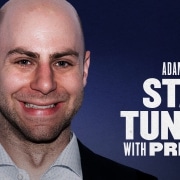The Psychology of Ford’s Fiesta and Focus Cover-Up
 It started with a trail of car owners bringing their Fords to repair shops. Eventually, it escalated to an out-of-control hemorrhaging of warranty costs and legal bills. Now Ford faces a federal criminal fraud probe into its conduct. Did the company know that the DPS6 dual-clutch “PowerShift” transmission it installed in its Focus and Fiesta cars was defective and could not be fixed? Did it ignore key internal warnings that the faulty transmission couldn’t comply with warranty obligations and car owners’ reasonable expectations? If so, why wasn’t the underlying problem ever addressed? A whistle-blowing investigation by the Detroit Free Press, which includes the accounts of seven former and current Ford employees involved in the planning and manufacturing of those car models, suggests that several layers of management may have known all along.
It started with a trail of car owners bringing their Fords to repair shops. Eventually, it escalated to an out-of-control hemorrhaging of warranty costs and legal bills. Now Ford faces a federal criminal fraud probe into its conduct. Did the company know that the DPS6 dual-clutch “PowerShift” transmission it installed in its Focus and Fiesta cars was defective and could not be fixed? Did it ignore key internal warnings that the faulty transmission couldn’t comply with warranty obligations and car owners’ reasonable expectations? If so, why wasn’t the underlying problem ever addressed? A whistle-blowing investigation by the Detroit Free Press, which includes the accounts of seven former and current Ford employees involved in the planning and manufacturing of those car models, suggests that several layers of management may have known all along.
We’ve been here before. Despite shared knowledge of misbehavior, there was a failure to act to stop an ensuing scandal. If many at Ford stood by as this avalanche of wrongdoing rolled down, it is not surprising that a few employees could not stop it from bowling them over.
How did it come to this? “A key-contributing factor to the total deafness Ford allegedly demonstrated toward the DPS6 transmission issue may have had to do with the costly investments it had already made to develop the two car models,” Caterina Bulgarella, Ethical Systems’ lead applied researcher, told me. “High sunk costs—the resources spent on a project that can only be recovered if the project is successful—can make it especially hard to acknowledge the gravity of a challenge and/or the feasibility of a plan.” One of Ford’s engineers, talking to the Detroit Free Press, put it this way: “They got to this point in the product development cycle where Ford realized they passed the point of no return.”
The idea that there is some “point of no return,” dictated by sunk costs, is a fallacy. People have a tendency to inflate the likelihood that a project will succeed if they have already put some money, effort, or time into it. That explains why people and teams can remain motivated to pursue a failing effort while becoming deaf to the truth. What it doesn’t explain is how competent stakeholders can ignore the gravity of certain technical issues.
Take how Ford quality supervisor Johann Kirchhoffer addressed some legal concerns about the stalling issue. He suggested that it was not hazardous, yet also that his team was “pursuing any effort to reduce the occurrence of an ‘Unintended Neutral’ event to a so-called ‘Broadly Acceptable level.’” Achieving that level in a reliable way was hardly feasible, according to the Detroit Free Press’ report. Maybe Kirchoffer was lying, or maybe he had succumbed to “an irrational sense of control at odds with reality,” as Bulgarella pointed out.
Having high sunk costs, as well as an illusory sense of control, can distort decision-making, and can lead to increasingly ineffective communication. “Since major business projects and efforts call for considerable investments, when organizations move from deliberating on a project to acting on it, the odds of accepting divergent opinions decreases rapidly,” Bulgarella said. The lack of willingness to face unpleasant facts need not have been Ford’s greatest failure. It may have been the company’s inability to plan ahead, ask critical questions, and probe important issues, when leaders were in the early stages of considering key ideas.
Employees can neglect speaking up about issues, viewing it as a futile exercise, when their managers don’t value their input. At Ford, though, it seemed management put a premium on employee silence. The company states, “We encourage our employees to be accurate and concise in all their communications,” but evidence from the Detroit Free Press investigation shows that the protocol to code internal calls from dealers was designed to avoid the use of words “like wreck or crash or fire.” Employees assigned to take those calls were trained not to “… say certain things that make the company liable,” because if they didn’t “say it the right way on the Ford tech hotline, you won’t have that job for long.”
As employees learn the different ways remaining silent can free them from harm (like avoiding being fired or retaliated against), they are likely to also learn the ways in which keeping their heads down can pay off (like being trusted, receiving a raise, being promoted to a position of greater responsibility, etc.). At Ford, people who questioned the performance of the DPS6 transmission were told not to “be naysayers” and were implicitly “accused of mutiny.” But, calling people “naysayers” or accusing them of not being good team members doesn’t simply make that employee voice futile, it also portrays silence as the behavior that can help the group make progress, and thereby increases its value as a group behavior. Unsurprisingly, people chose to put their “head down and make it work.”
Boosting the value of employee silence by multiplying its benefits to self, team, and organization can also, Bulgarella said, “tip the balance of perceived dilemmas such as the choice between loyalty and fairness.” Around the time in which the Fiesta and Focus car models were being developed, according to one production worker, the tension at Ford was high. “It was right after the recession, right after Ford, GM and Chrysler all basically redid their whole infrastructure”—this made it very difficult to disrupt things. By prioritizing, perhaps not deliberately, loyalty to their teams, employees may have found it harder to determine what doing the right thing meant. While Ford may have had a hotline, a suggestion box, and/or some other reporting channels, it was the value the company attributed to silence that may have clouded people’s ethical judgment the most, perhaps making dissent and whistleblowing all the more difficult.
Reinforcing silence has a way of shoring up obedience. “When employees are asked to solely do their jobs,” Bulgarella said, “they become more likely to put down their moral compass.” In the end, if leaders are not interested in earnest feedback, they can try to figure things out by themselves. But obedience doesn’t simply suppress voice, it also weakens a leader’s ability to listen to feedback. Ford was repeatedly forced to renew its warranty terms, and some engineers and product designers started to find it too difficult to ignore the potential damages the cars’ sudden shuddering, accelerating, and/or lurching could cause drivers. “For these employees,” Bulgarella noted, “breaking ranks and speaking out had much to do with the moral intensity of the issue they faced.” But the intensity of an ethical challenge rarely weighs more than the challenges that prevent people from speaking up or blowing the whistle.
While Ford was readying itself for the commercial release of its new cars, it continued to struggle with the transmission issue. “They were trying to rush software out to deal with the problem of vehicle performance and shifting,” noted one engineer, and “management latched onto it,” figuring that “not only can we mask problems, but we can fake success.”
Ford is now saying that “the litigation [against the company] is the work of greedy lawyers eager to line their pockets through frivolous claims” and that the investigation by the Detroit Free Press is an act driven by such lawyers. On the contrary, the stakes were so high for Ford during the time of the cover-up that it clouded managers’ judgment. A cocktail of pressure and blindness on one hand, and fear of retaliation and voice futility on the other, led ethical fading and moral disengagement at Ford to snowball.
Brian Gallagher is Ethical Systems’ Communications Director. Follow him on Twitter @BSGallagher.









